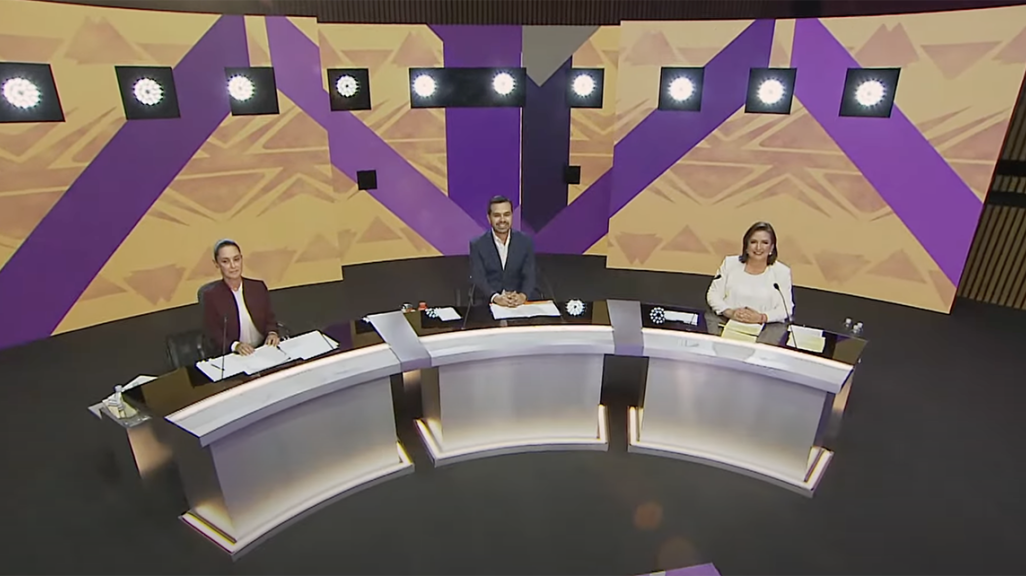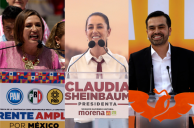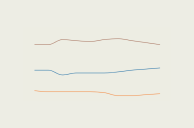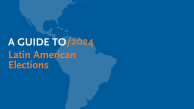Mexico Elects: Tracking the 2024 Presidential Debates
Mexico Elects: Tracking the 2024 Presidential Debates
Claudia Sheinbaum, Xóchitl Gálvez, and Jorge Álvarez Máynez sparred in three debates. AS/COA Online tracks the topics and formats of each.
This page was originally published on April 8, 2024 and has been updated since.
Whether debates can make a difference in the outcome of an election is, well, a matter of debate. On one hand, the forums can help voters make better-informed decisions at the ballot box and engage with the electoral process in a manner that deepens democracy. On the other, many observers contend that unless a candidate has a disastrous performance, debates are unlikely to affect results.
In the case of Mexico, the question of whether debates matter is unclear in a race where polls give Claudia Sheinbaum of the governing Morena alliance a roughly 22-point lead over her closest rival, Xóchitl Gálvez of the PAN-PRI-PRD opposition coalition. Another candidate, MC’s Jorge Álvarez Máynez, lands a distant third.
Mexico has been holding presidential debates for 30 years, starting with the 1994 elections. There are signs debates have had an impact on the trajectory of the country’s races, even if they didn’t change the final outcomes of the last two presidential votes of 2012 and 2018. Given that President Andrés Manuel López Obrador ran for president three times, this was the first round of presidential debates in which he did not feature since 2000.
The three presidential debates took place April 7, April 28, and May 19 in Mexico City. AS/COA Online summarizes the themes, formats, and outcomes of each forum.
Get updates on Mexico's giant elections, right up through the outcome of the June 2 vote.
Learn about Claudia Sheinbaum, Xóchitl Gálvez, and Jorge Álvarez Máynez—the three rivals competing to succeed Andrés Manuel López Obrador.
Claudia Sheinbaum, Xóchitl Gálvez, and Jorge Álvarez Máynez are competing for the presidency. See polls ahead of the June 2, 2024 election.
AS/COA covered 2024's elections in the Americas, from presidential to municipal votes.













